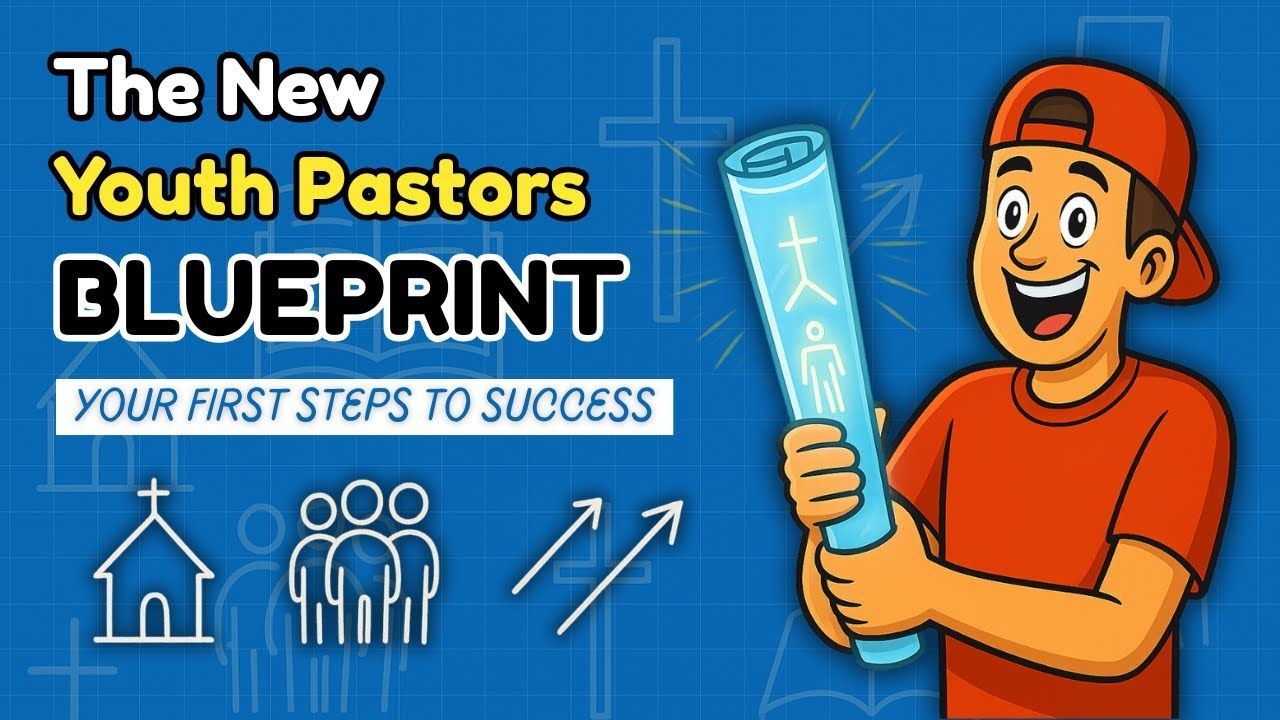Youth Ministry Made Easy: The Top 5 Hacks for Success | Beyond the Youth Room • Episode 72
Productivity Hacks for Youth Ministry - Finding Balance and Achieving Excellence
Welcome to a conversation about making youth ministry more manageable.
Check out the podcast
here!
We're Keith and Ryne, and we're diving into productivity hacks that can transform your experience as a youth leader. Let's be honest: youth ministry can be overwhelming. We've all felt the weight of trying to balance our personal lives with the demands of ministry. But it doesn't have to be a constant struggle.
We've noticed a common stereotype that youth leaders are often disorganized or unprepared. We want to challenge that perception and provide practical tools to help you thrive. Whether you're a full-time youth pastor, bi-vocational, or even "tri-vocational" as Ryne jokingly mentioned, time management is crucial. We all have the same 24 hours in a day, but how we utilize that time makes all the difference.
Many of us have felt the pressure of ministry consuming our lives. We might feel overwhelmed, struggle to prioritize family, or feel like our identity is solely tied to our ministry success. To combat this, we've compiled our top five productivity hacks to ensure your personal life is healthy and balanced, allowing you to be more effective in your ministry.
Ryne and I are sharing our top five tips, and we'll go back and forth, starting with number five.
Ryne's Number Five: Acknowledge Your Vices and Seek Accountability
Ryne's fifth hack is about acknowledging your struggles and confessing them to trusted individuals outside your church context. He emphasizes the importance of having an outlet where you can be open and honest without feeling judged or constrained by church dynamics. This accountability helps combat those struggles and prevents them from consuming your time and energy.
Keith's Number Five: Surround Yourself with High Achievers
Keith's fifth hack is about surrounding yourself with people who inspire you to excel. He believes that you rise to the level of those you spend time with. By associating with high-capacity individuals, you'll naturally elevate your own standards and mindset. He also points to learning from historical mentors through missionary biographies, which broadens your perspective and raises your expectations.
Keith's Number Four: Set Goals for Balance
Keith's fourth point is about setting goals that keep your life balanced. He emphasizes setting goals in areas outside of ministry, like finances and fitness. This ensures that your identity isn't solely tied to your ministry and that you're growing in all areas of your life.
Ryne’s Number Four: Vital Goals
Ryne’s number four is about focusing on vital goals, those that will make the biggest impact on your life. He encourages choosing no more than three banner goals for the year, focusing on what will truly move the needle.
Ryne's Number Three: Twelve Week Goals
Ryne's number three is about setting twelve-week goals, which helps to stay on track throughout the year instead of waiting until the end. This allows for smaller, more manageable goals and a sense of urgency.
Keith’s Number Three: Intersection of Enjoyment and Learning
Keith's number three is about finding the intersection between enjoyment and learning. He explains how he learns best when it is on a topic he enjoys, like history.
Ryne's Number Two: Utilize a Productivity System
Ryne's second hack emphasizes the importance of using a productivity system. He recommends exploring both digital and analog tools to find what works best for you. Whether it's a handwritten planner or a digital task management system, find a system that helps you stay organized and accomplish your goals.
Keith's Number Two: Prioritize Your Physical Health
Keith's second hack highlights the importance of prioritizing your physical health. He shares a funny anecdote about a dodgeball game gone wrong to illustrate the need for physical energy in ministry. He emphasizes that taking care of your body reduces stress, improves your mood, and ensures you have the stamina to invest in your students and family.
Ryne's Number One: Pray for Effectiveness
Ryne's top productivity hack is prayer. He emphasizes praying for effectiveness and for the Lord to work on your behalf. He shares an inspiring story about Martin Luther's prayer routine and highlights the importance of relying on God's power rather than our own.
Keith's Number One: Get Up Early
Keith's number one hack is getting up early. He clarifies that it's not just about getting a head start on your tasks but about prioritizing time with God and taking care of yourself before the day's demands take over. He shares his personal routine and the benefits he's experienced from getting up early.
Conclusion
We hope these productivity hacks inspire you to find balance, achieve excellence, and prioritize your well-being in ministry. Remember, you're not alone in this journey. We encourage you to join our free youth ministry mastermind, Beyond the Youth Room Community, where you can connect with other leaders, ask questions, and find support.
Thank you for joining us on this episode of Beyond the Youth Room. We appreciate your dedication to youth ministry and hope these tips help you thrive in your calling.











